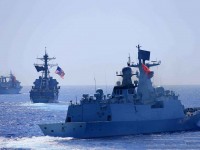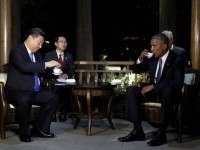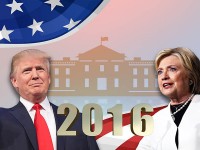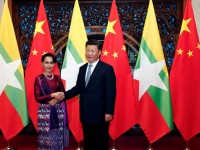Erin Murphy, Founder and Principal, Inle Advisory Group
Sep 12, 2016
If the U.S. and China’s stated goals in both the G20 and the EAS hold true, Southeast Asian countries stand to benefit greatly. As is readily apparent in Myanmar, countries in the region no longer desire to be pawns in a geopolitical economic game, but rather collaborative partners to ensure fair benefits.

Yao Yunzhu, Retired Major General, Chinese People’s Liberation Army
Sep 12, 2016
The China-US military relationship goes beyond its traditional bilateral boundary, and moves into regional and even global arenas. With the Chinese military extending its global reach, it finds more occasions to cooperate with its US counterpart, despite new frictions arising from China’s bilateral disputes with its neighbors, some of whom are U.S. allies. Crisis-prevention management and confidence-building measures have become important new elements in the relationship, crucial stabilizers even in the worst circumstances.
Chi Wang, Co-chair and President, U.S.-China Policy Foundation
Sep 09, 2016
As Monday marked the end of the G20 conference, and what was likely President Obama’s last trip to China during his tenure as president, it is impossible not to look back at his relationship with China and its leaders over the past eight years.
Wu Zurong, Research Fellow, China Foundation for Int'l Studies
Sep 09, 2016
A visit to China by Pentagon chief Ashton Carter could help increase mutual understanding, dispel some unnecessary misjudgments, and build more political trust between the two countries and their armed forces. For the sake of improving Sino-U.S. relations, the two sides should have grasped the opportunity rather than beating a retreat in the face of difficulties.
Yu Sui, Professor, China Center for Contemporary World Studies
Sep 08, 2016
China and Russia will conduct a joint naval exercise codenamed Joint Sea 2016 in the South China Sea from Sept 12 to 19.

Shen Dingli, Professor, Institute of International Studies, Fudan University
Sep 07, 2016
As the Obama presidency ends, expect the US-China partnership to become ever more complicated. Beijing and Washington will collaborate more on global issues, non-traditional security matters in particular, while contesting more on strategic domains and regional leadership — but there is still hope to forge a predictable and constructive future.

Xenia Wickett, U.S. Project Director, Chatham House
Sep 07, 2016
The U.S.-China relationship is probably the most important one that the next president will need to manage. There would be few surprises for Asia in a Clinton presidency who would largely maintain the traditional ‘hedge and engage’ policy towards China. While a Trump presidency could be seen as better for China, allowing more leeway on security issues, adding an additional element of unpredictability that he would bring to China’s already uncertain economy, would not be good for the country or President Xi Jinping.

Song Qingrun, Associate Professor, China Institutes of Contemporary International Relations
Sep 06, 2016
The three countries must identify areas of cooperation in Myanmar, such as investment, public service projects among others, and foster a viable cooperation mechanism where interests are shared, risked are distributed. A non-competitive approach will contribute to the economic prosperity of Myanmar and the well-being of its people, and will meet the interests of the three countries and the region at large.
Sajjad Ashraf, Former Adjunct Professor, National University of Singapore
Sep 05, 2016
While the U.S. calls for respect of the given ruling under the Law of the Sea Convention, of which the U.S. is not a signatory, none of the predicted responses from China and the Philippines have come true. On the contrary, both have opted for ‘strategic restraint,’ choosing to use dialogue in order to find common ground.
Liu Junhong, Researcher, Chinese Institute of Contemporary Int'l Relations
Sep 02, 2016
Not long ago, China, Japan and the ROK finally got their foreign ministers together in Tokyo. The foreign ministers’ meeting naturally had an important mission, and the opportunity it created may, to a considerable extent, reshape the relations among the three countries.
Back to Top

- China-US Focus builds trust and understanding between the U.S. and China through open dialogue among thought leaders.
- Our Offerings
- Topics
- Videos
- Podcasts
- Columnists
- Research Reports
- Focus Digest
- Stay Connected
-
Thanks for signing up!
- Get the latest stories from China-US Focus weekly.